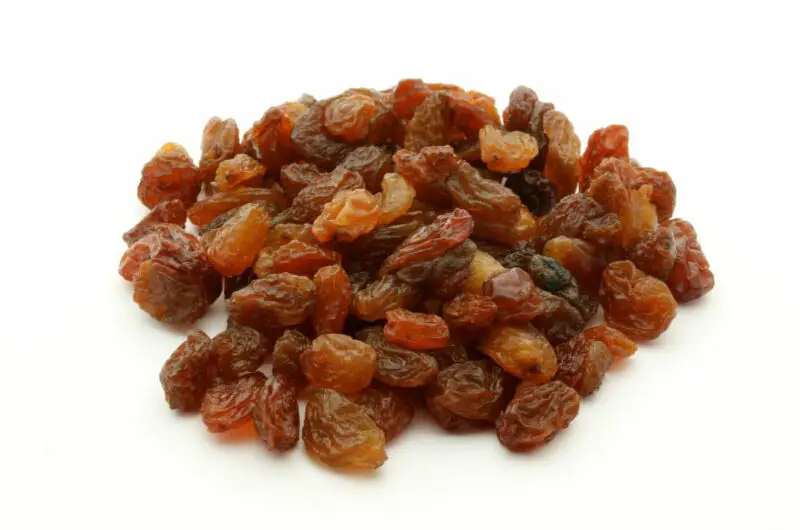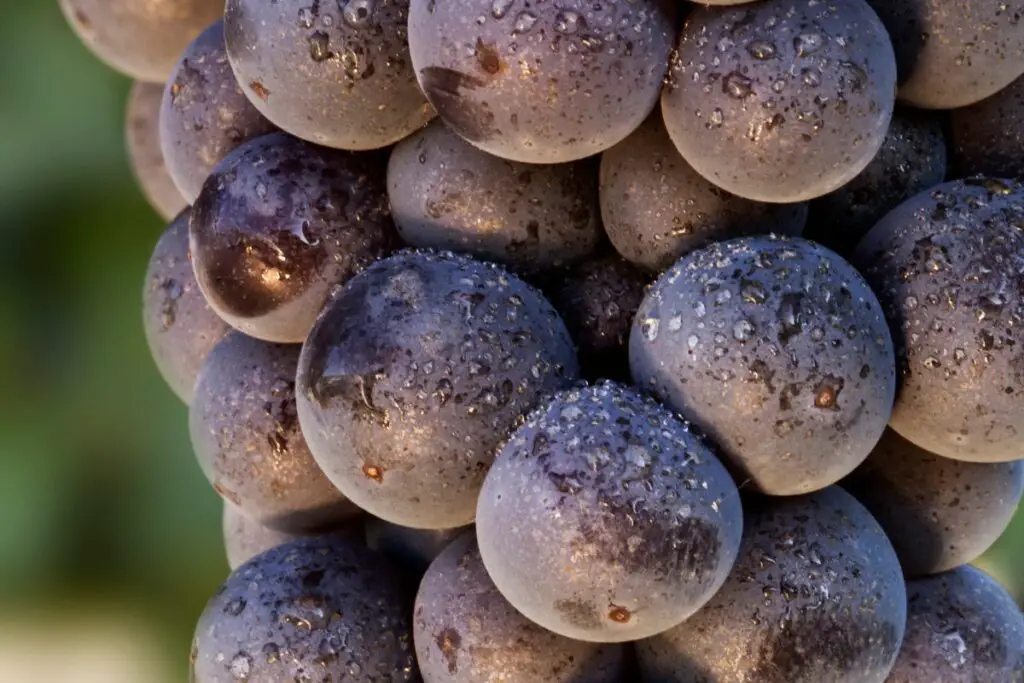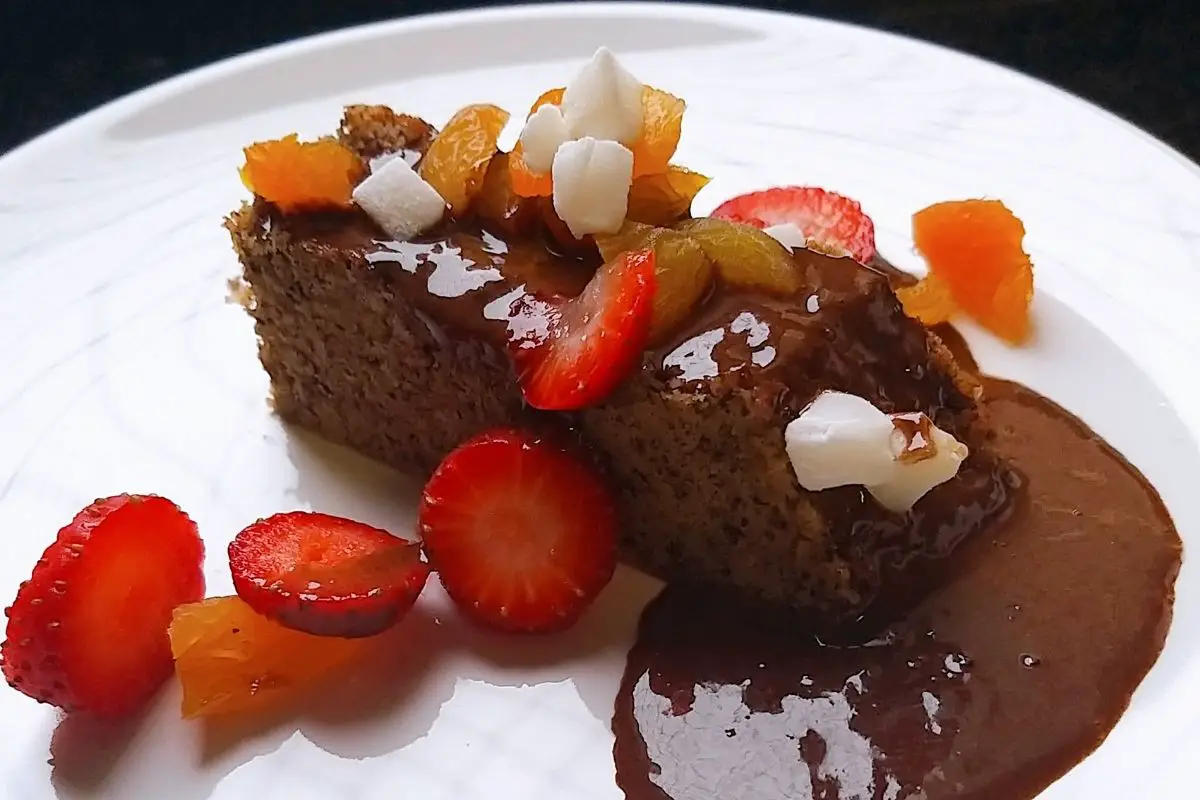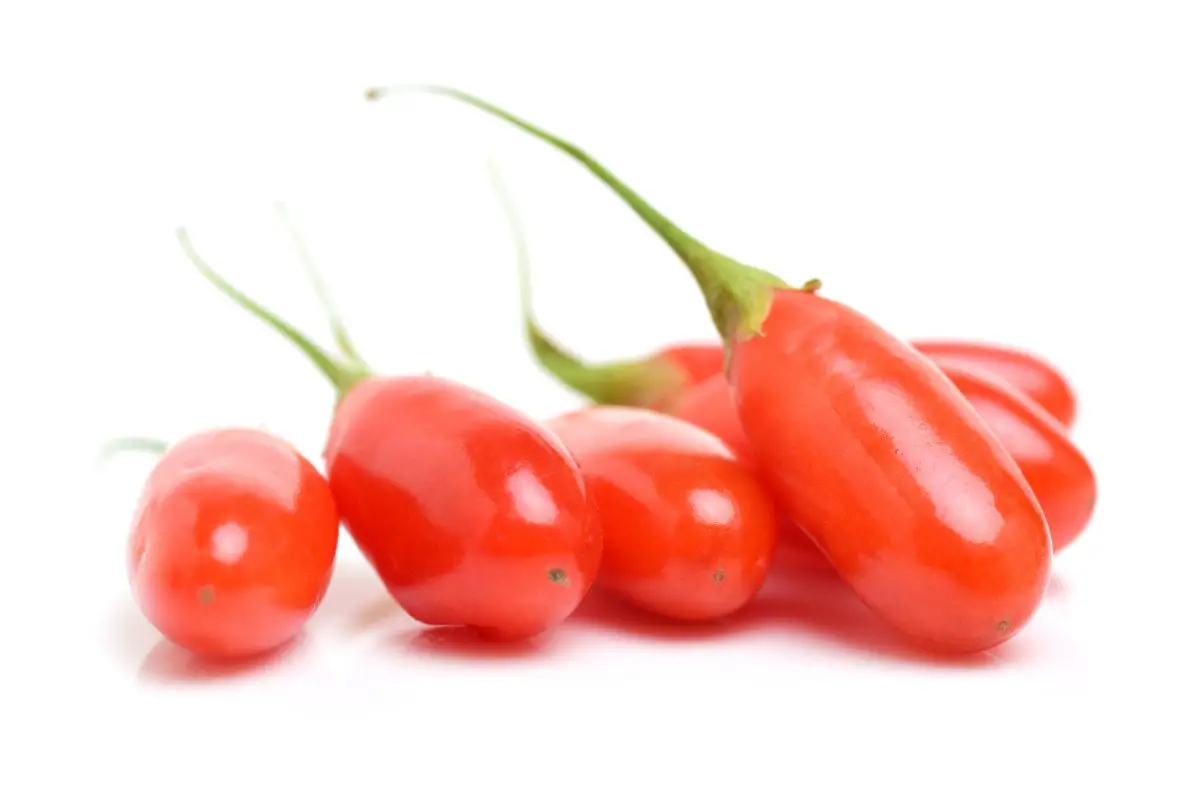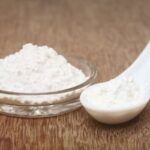Sultanas are a popular dried fruit that is commonly used in baking, salads, and trail mixes.
However, if you’re looking for a substitute due to allergies, taste preferences, or simply not having them on hand, there are plenty of delicious alternatives to choose from.
In this article, we’ll explore six of the best substitutes for sultanas that can add flavor and nutrition to your dishes.
Whether you’re looking for something sweet or savory, there’s a substitute on this list for you.
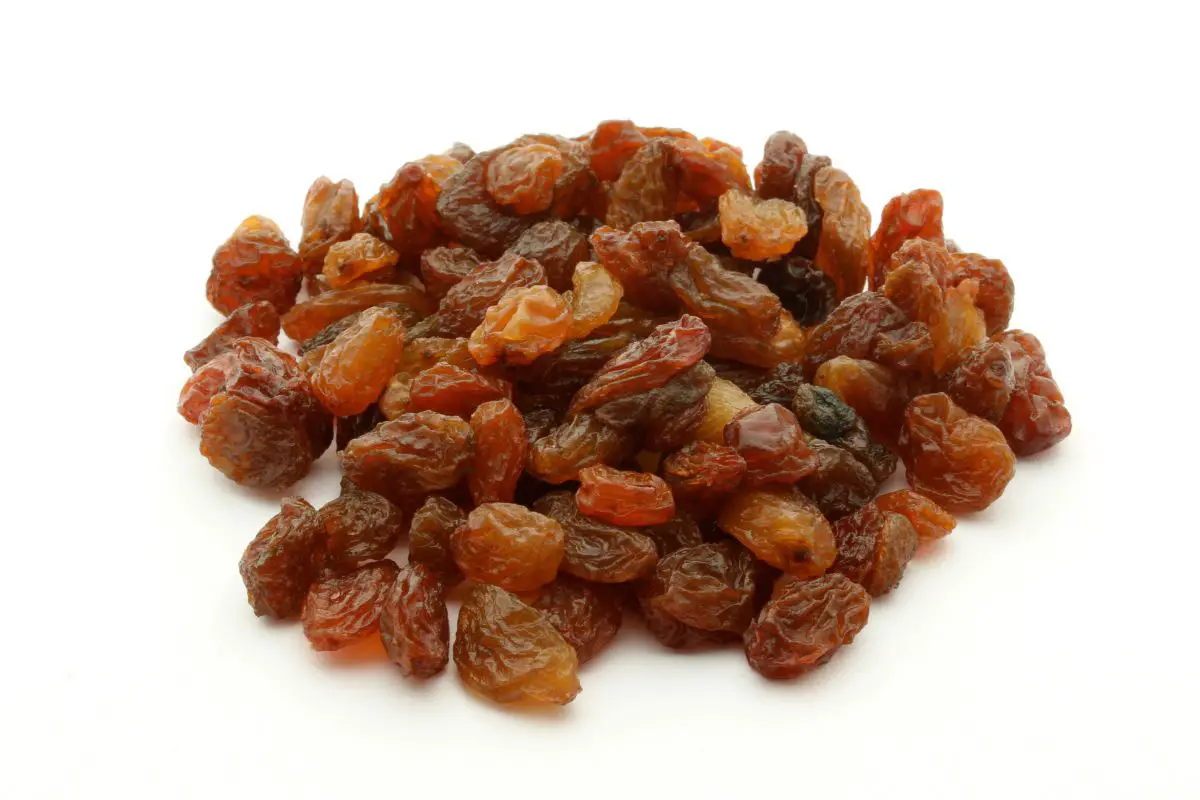
What Are Sultanas?
Sultanas are a type of dried fruit that is made from green seedless grapes. They are small, sweet, and chewy, with a slightly tart flavor.
Sultanas are often used in baking, trail mixes, and salads, and they can also be enjoyed as a snack on their own.
They are commonly used in Mediterranean and Middle Eastern cuisine and are a popular ingredient in dishes like pilafs, stews, and tagines.
Sultanas are similar to other types of dried grapes, such as raisins and currants, but they are typically lighter in color and softer in texture.
Health Benefits Of Sultanas
Sultanas offer several health benefits, including:
- Rich in nutrients: Sultanas are a good source of vitamins and minerals, including potassium, iron, and vitamin B6. They are also high in antioxidants, which can help to protect the body against oxidative stress.
- Promote digestion: Sultanas contain both soluble and insoluble fiber, which can help to promote healthy digestion and prevent constipation.
- Energy booster: Sultanas are a good source of natural sugars, which can provide a quick and sustained energy boost.
- Heart health: Sultanas are low in fat and sodium, and they contain flavonoids that can help to reduce the risk of heart disease by lowering cholesterol levels.
- Blood sugar regulation: Sultanas have a low glycemic index, which means they can help to regulate blood sugar levels and prevent spikes in insulin.
Sultanas are a nutritious and delicious addition to a healthy diet. However, it is important to keep in mind that they are high in sugar and should be consumed in moderation as part of a balanced diet.
Who Should Avoid Sultanas?
While sultanas offer several health benefits, there are certain groups of people who may need to avoid or limit their intake for various reasons.
These include:
- People with diabetes: Sultanas are high in natural sugars and carbohydrates, which can cause a rapid rise in blood sugar levels. Individuals with diabetes may need to limit their intake of sultanas or other dried fruits to help manage their blood sugar levels.
- People with allergies: Some individuals may be allergic to grapes or sulfites, which are commonly used in the drying process of sultanas. If you have a known allergy to grapes or sulfites, it is important to avoid sultanas and other dried fruits.
- People with dental issues: Sultanas are high in sugar, which can contribute to tooth decay and other dental issues. Individuals with dental problems or a history of dental cavities may need to limit their intake of sultanas.
- People on a low-carb or low-sugar diet: Sultanas are relatively high in natural sugars and carbohydrates, so they may not be suitable for individuals following a low-carb or low-sugar diet.
As with any food, it is important to consult with a healthcare professional or registered dietitian to determine if sultanas are a suitable addition to your diet.
Top 6 Sultanas Substitutes
Here we’ve put together a list of the top 6 substitutes for sultanas:
1. Raisins
Raisins are a common substitute for sultanas in cooking and baking. They are made from grapes that have been dried in the sun or in a dehydrator, just like sultanas.
Sultanas are generally larger than raisins, and this difference may affect the texture of a dish. Raisins have a more intense grape flavor and are slightly tangy.
This difference in flavor may affect the overall taste of a dish, but in most recipes, it should not be noticeable.
2. Currants
Currants are another popular substitute for sultanas in cooking and baking. They are a small, dark-colored dried fruit that is similar in texture and flavor to sultanas.
Currants are slightly more tart than sultanas, which can affect the overall flavor of a dish. Currants are also much smaller than sultanas, which can affect their texture in some recipes.
3. Dried Cherries
Dried cherries can also be a suitable substitute for sultanas in many recipes.
They are made from tart cherries that have been dried, and have a sweet and tart flavor that can add a unique twist to many dishes.
Dried cherries are sweeter and more tart than sultanas, which can change the overall flavor of a dish.
In recipes where sultanas are meant to add a milder sweetness, such as in oatmeal cookies or fruitcake, dried cherries may not be the best substitute.
However, in recipes where a tangy sweetness is desired, such as in a savory grain salad or trail mix, dried cherries can be a delicious alternative.
4. Dried Cranberries
Dried cranberries can also be a good substitute for sultanas in many recipes.
They are made by drying fresh cranberries, and have a sweet-tart flavor that can add a pleasant zing to dishes.
In recipes where the sweetness of sultanas is a prominent flavor, such as in cookies or muffins, the tartness of dried cranberries may not be ideal.
However, in recipes where the dried fruit is used in combination with other sweet ingredients, such as in granola or trail mix, the tartness of dried cranberries can be balanced out.
They have a unique flavor that can add interest to dishes, and their small size and bright color can make them a visually appealing addition to many dishes.
5. Chopped Dates
Chopped dates are made by chopping fresh dates into small pieces, and have a sweet and caramel-like flavor that can add depth to dishes.
Chopped dates are generally sweeter than sultanas, which can affect the overall sweetness of a dish.
In recipes where the dried fruit is used in combination with other flavorful ingredients, such as in a savory rice dish, the flavor of chopped dates can add depth and complexity.
6. Dried Apricots
Dried apricots can be another substitute for raisins in some recipes. They are made by drying fresh apricots and have a slightly tart and tangy flavor that can add brightness to dishes.
Dried apricots are chewy and slightly firmer than raisins. They have a bright orange color, while raisins are darker in color.
This can affect the appearance of a dish, but in most recipes, the difference will not be significant enough to impact the overall outcome.
Final Thoughts
As you can see there are many substitutes for sultanas, each with its own unique flavor, texture, and sweetness.
Raisins, dried cherries, dried cranberries, currants, chopped dates, and dried apricots can all be used as substitutes for sultanas in various recipes, depending on the desired outcome.
It’s important to consider the texture, sweetness, and flavor of each substitute when choosing which one to use, in order to achieve the best possible result.
Experimenting with different substitutes can also lead to exciting new flavor combinations and dishes.
The 6 Best Substitutes For Sultanas
Course: Substitutes4
servings30
minutes40
minutes300
kcalIngredients
Raisins
Currants
Dried Cherries
Dried Cranberries
Chopped Dates
Dried Apricots
Directions
- Decide on what substitute you need
- Pick a substitute from the list above
- Read what you need to substitute with
- Create the recipe and enjoy
Recipe Video
- What Exactly Do Chickpeas Taste Like? Is There A Distinct Flavor? - September 30, 2023
- Top 11 Low Carb Options at Sonic Drive-In for Keto Diet - September 30, 2023
- What Should You Serve Alongside Potato Salad? 8 Incredible Side Dishes - September 30, 2023

